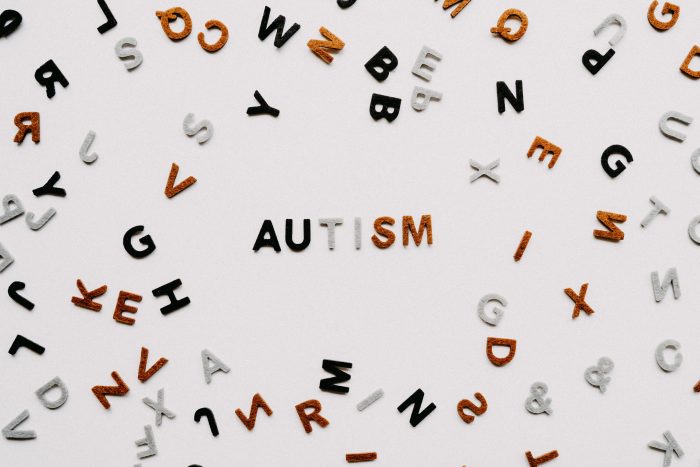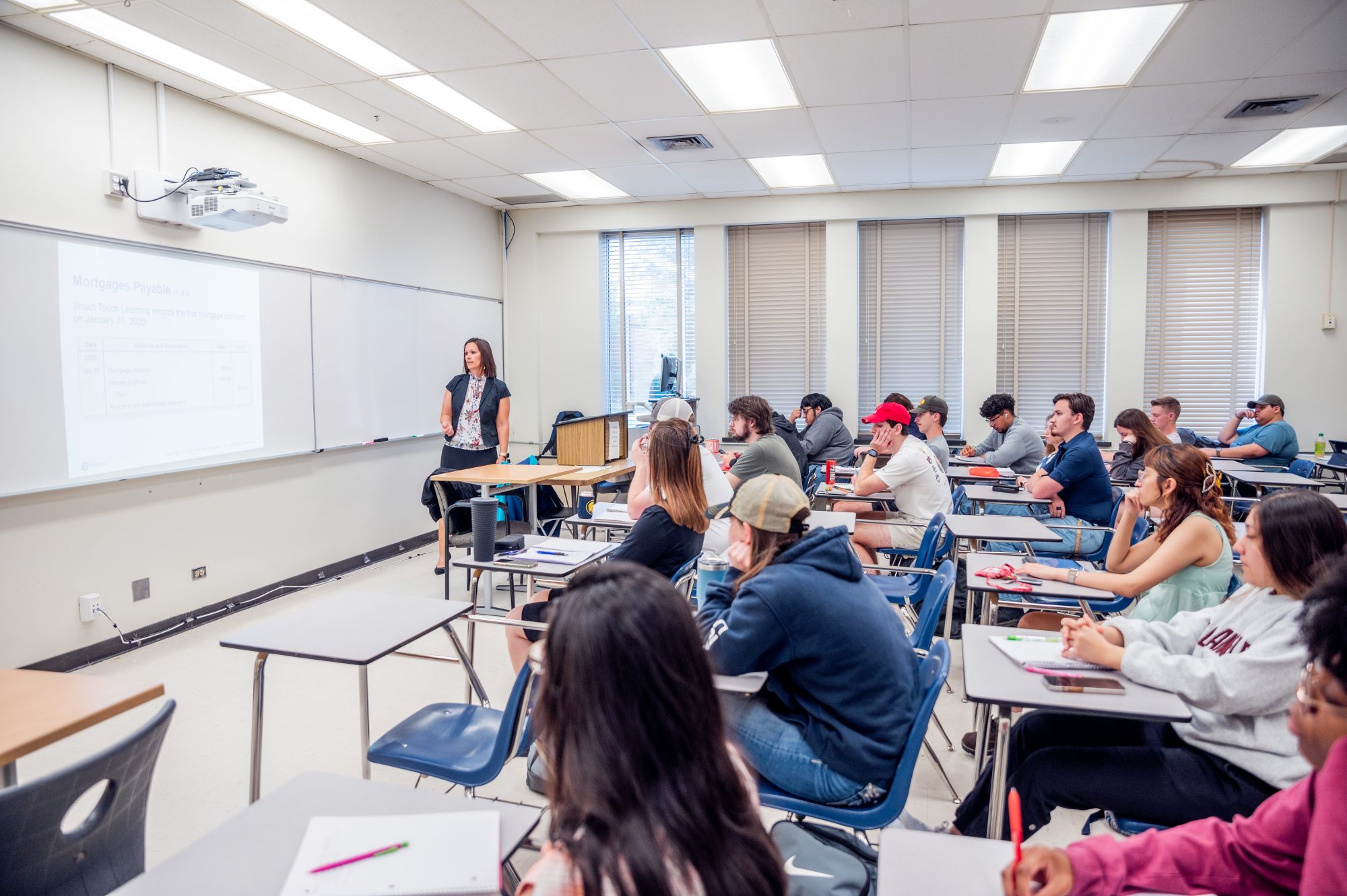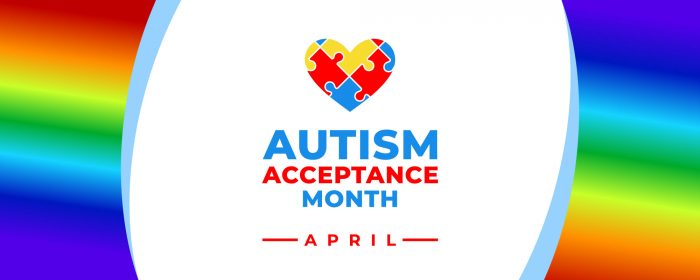Autism in College—6 Surprising Facts About Autism Spectrum Disorder and Student Success at A&M-Commerce

April is Autism Acceptance Month in the U.S., so it's a great time to highlight neurodiverse students at Texas A&M University-Commerce.
Autism Acceptance Month is observed worldwide to foster support, appreciation and acceptance of people with Autism Spectrum Disorder (ASD). Like every student at A&M-Commerce, students with autism contribute unique world perspectives and abilities, and they deserve respect and support as they pursue their dreams.
Alexis Duggan and her team in Student Disability Services at A&M-Commerce work hard to provide supportive services for students with autism and create a campus culture of inclusion.
In honor of Autism Acceptance Month, Duggan shared six surprising insights into autism and student success at A&M-Commerce:
1. 44 students with ASD are registered with Student Disability Services (SDS) at A&M-Commerce.
That's about one out of every 244 students you meet on campus. However, these figures do not account for students not registered with SDS, so that number is likely much higher. These statistics align with a self-reported ASD study that reflects 1 in 225 beginning college students in the U.S. have ASD.
2. The percentage of college students with ASD is increasing.
While the number of self-reported students with ASD at A&M-Commerce is small, the number has increased since 2019, when nine students were reported with ASD. As autism diagnoses continue to increase nationally, the percentage of college students with ASD will likely increase as well. In response, colleges and universities nationwide—including A&M-Commerce—are implementing new programs and support services to help these students navigate higher education.
3. Students with autism may access customized support services at A&M-Commerce.
Students with autism face unique hurdles, but SDS offers support to students who register for services. Since autism is a spectrum, every person diagnosed with ASD has individualized needs. SDS accommodations may include extra time on tests, a testing environment with reduced distractions, note-taking software, approved use of service and emotional support animals, access to a sensory room within the Counseling Center, audible textbooks, reduced lighting, and sensory supports, like headphones, manipulatives, and sunglasses.
4. Atypical Ambassadors—an innovative autism support group—is thriving on the A&M-Commerce campus.
Five years ago, A&M-Commerce launched the Atypical Ambassadors program. The program merges support from SDS, the Counseling Center and the Career Center to help students navigate college life. The program integrates students with autism into the A&M-Commerce campus through wellness, campus resources, career development and hands-on experience. One of the first such programs in the nation, students meet once a week for two hours to work on developing their communication, socialization and job readiness skills. The program also helps students form friendships and feel a sense of community on campus.
5. An on-campus residential community for students with autism is available at A&M-Commerce.
The Atypical Ambassadors Living Learning Community is a residential cluster of students who are either on the autism spectrum or who want to learn from or build relationships with students on the spectrum. Students in this learning community enjoy forming friendships and sharing knowledge and experiences with other students in a residential setting. Although the program will not be active in Fall 2023, it may be reinstated in future semesters according to interest and demand.
6. Students with autism form friendships with other students through a unique peer mentorship program at A&M-Commerce.
Peer mentorships help students with autism enhance their social skills and feel a sense of belonging on campus. Mentees meet with their mentors for around 30 minutes weekly to have lunch or attend campus events. A peer mentor may be any student interested in learning more about students on the spectrum.

Duggan affirmed that students with ASD deserve the same access to higher education as their peers. Nonacademic services like Atypical Ambassadors, peer support and career readiness are vital for student success.
“Autism is a neutral characteristic for students on the spectrum, meaning these students have an identity outside of their disability,” Duggan said. “The diagnosis simply provides insight into how a student may learn or take in information. It is our job as campus staff to take an active role in serving students on the spectrum.”
Learn more about Student Disability Services at tamuc.edu/SDS.
Autism photo at top by Annie Spratt on Unsplash
More Student Disability Services
View All Student Disability Services
TAMUC Celebrates Autism Acceptance Month
April is Autism Acceptance Month, and Student Disability Services (SDS) at Texas A&M University-Commerce hosted several events to comm...


